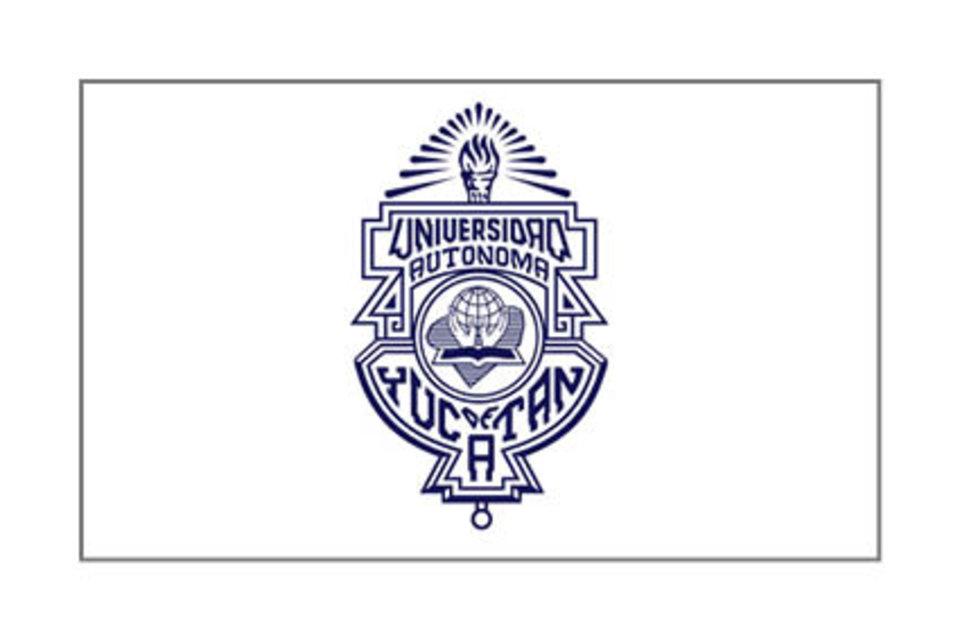- offers the chance to enrich individual education, and leads to a variety of new experiences
- promotes the examination of cultural traditions,
- improves intercultural competence and foreign language skills
- strengthens personal character traits such as the ability to work independently, flexibility, initiative and assertiveness
Digitalisation plays a key role in our everyday lives today and we can hardly imagine life without the many possibilities that digitalisation offers us (online shopping, online banking, exchanging news, photos and videos with friends, smart home, ... ). The same applies to industrial plants, which are becoming more and more digitalised and can run fully automatically. Huge amounts of data (big data) are being generated that need to be processed. But how do you digitise such systems?
The Digitalisation and Information Management degree course aims to prepare you for precisely these tasks. Successful digitalisation requires more than just IT skills. We are looking for experts who also understand the technology involved and know how users make use of digitalisation. Where does the data for my app come from? How do I process these huge amounts of data? How do I control an industrial plant or my smart home at home? Without this broad background knowledge, many digitalisation projects fail.
On this degree programme, you will therefore learn the necessary programming skills and the basics of modern IT technologies in the first two semesters of the foundation course. You will deal with topics for practical application such as sensors and data acquisition, digital networks (how does the Internet work?) and the Internet of Things (IoT). In the main course, you will deepen your knowledge of programming complex, distributed systems, processing large amounts of data with artificial intelligence (AI) and visualising data. These areas are an important part of the degree programme. They show how users can utilise data more effectively. The focus is on a very application-orientated course in small groups with lots of practical exercises and projects. This prepares you optimally for the demands of professional life.
It is precisely this combination of IT knowledge, understanding of technology and interaction with the user that the industry of today is looking for. So if you are enthusiastic about technology as well as programming or would like to acquire important IT skills alongside your fascination for technology, this is the right place for you.
With a degree in Digitalisation and Information Management, you have the best career opportunities and you can choose between the following Master's degree courses at HFT Stuttgart: Digitale Prozesse und Technologien, Software Technology, Umweltorientierte Logistik or Photogrammetry und Geoinformatic
Accreditation certificate for the degree programme in Digitalisation and Information Management
(formerly Information Logistics)
Read an example of a successful student journey through the degree programme here.
July 15th (winter semester)
7 Semester
Bachelor of Science (B. Sc.)
Digital Student Advisory Service BSc. Digititalization and Information Management
Get straightforward advice on your future course of study: Join us at our Digital Student Advisory Service
For the study program BSc. Digitalization and Information Management
this takes place on Mondays from 15:30 - 16:00 on the following dates:
07.04.2025, 28.04.2025, 19.05.2925, 02.06.2025, 30.06.2025, 07.07.2025, 14.07.2025
All prospective students can log in easily and without obligation via Zoom and get in direct contact with our study advisor.
Why is the degree programme displayed in both the areas of computer science and surveying?
What does the study programme look like?
Any unanswered questions? Who can I contact?
Is the degree programme accredited?
Basic studies
In the basic study period, fundamental contents of information logistics, computer science, sensor and actuator technology are taught. You will learn object-oriented programming and applications of telematics. The range of courses is complemented by mathematics and business administration with a focus on logistics, as well as key qualifications in foreign languages, presentation and communication.
Main studies
In the main study period, the knowledge of computer science and measurement technology is expanded and supplemented by special subjects such as eCommerce, workflow management, geo-visualisation, data analysis and mobile computing. The forward-looking course of studies is completed by key qualifications such as software project management.
Key features include integrated projects with companies that teach you an interdisciplinary, multidisciplinary way of working and team skills.
Practical study semester
The practical study semester (5th semester) serves to apply and deepen the theoretical knowledge acquired during the course of studies under practical conditions in cooperation with companies. Practical experience abroad is explicitly supported by an international network of universities and companies.
Bachelor thesis
The final thesis (bachelor thesis) is written in the 7th semester and is usually carried out in cooperation with companies in the fields of production, logistics and information technology. It is intended to show that the student is able to work independently on a task from the main focus of information logistics within a given time using engineering methods. The thesis can of course also be completed at partner universities or companies abroad.
Studying in the age of globalisation and international networking should not only include learning at the home university, but also the willingness to gain international experience abroad and to be internationally mobile.
The HFT Stuttgart has many contacts to universities abroad and supports you in organising an internship or a stay abroad of one or more semesters. The best opportunity for this is the supervised practical semester (5th semester), during which a stay abroad is expressly supported.
![[Image: HFT Stuttgart] Students of Digitalisation and Information Management](/fileadmin/Dateien/Vermessung/_processed_/3/c/csm_IL-Studenten-Balluff_7293914908.jpg)
![[Image: Pixabay] Grafik Künstliche Intelligenz (KI)](/fileadmin/Dateien/Marketing/_processed_/a/7/csm_hft-stuttgart-digtalisierung-informationsmanagement_7cc45b1235.jpg)
![[Image: HFT Stuttgart] Lichthof der HFT Stuttgart](/fileadmin/Dateien/Vermessung/_processed_/f/5/csm_HFT-Imageshooting-2018-Lichthof_d89c101474.jpg)
![[Image: HFT Stuttgart] HFT Lichthof Blick zur Cafeteria](/fileadmin/Dateien/Vermessung/_processed_/9/7/csm_HFT-Imageshooting-2018-Cafeteria_c976d7021d.jpg)
![[Image: HFT Stuttgart] Gang in der HFT Stuttgart](/fileadmin/Dateien/Vermessung/_processed_/4/a/csm_HFT-Imageshooting-2018-Gang_b952f9de9f.jpg)
![[Image: HFT Stuttgart] Studenten im HFT Lichthof](/fileadmin/Dateien/Vermessung/_processed_/6/c/csm_studenten-lichthof1_1cbd447d43.jpg)
![University of Parma [Image: University of Parma] Logo University of Parma](/fileadmin/Dateien/Vermessung/_processed_/3/7/csm_Parma_partneruni_IL_2cc3b707da.jpg)
![Montanuniversität Leoben [Image: Montanuniversität Leoben] Logo Montanuniversität Leoben](/fileadmin/Dateien/Vermessung/_processed_/2/1/csm_montan_pertneruni_IL_080b94542f.jpg)
![Moscow State University of Goedesy and Cartography [Image: Moscow State University] Logo Moscow State University](/fileadmin/Dateien/Vermessung/_processed_/3/1/csm_partneruni_IL_moskau_01_b657de8561.jpg)
![Riga Technical University [Image: Riga Technical University] Logo Riga Technical University](/fileadmin/Dateien/Vermessung/_processed_/e/9/csm_partneruni_IL_riga_8783a3ab9c.jpg)
![University of Oviedo [Image: University of Oviedo] Logo University of Oviedo](/fileadmin/Dateien/Vermessung/_processed_/6/f/csm_oviedo2_22e248003c.jpg)
![Istanbul Technical University [Image: Istanbul Teknik Üniversitesi] Logo Istanbul Teknik Üniversitesi](/fileadmin/Dateien/Vermessung/_processed_/c/1/csm_istanbul2_88ac910046.jpg)
![Amsterdam University of Applied Sciences [Image: Amsterdam University of Applied Sciences] Logo Amsterdam University of Applied Sciences](/fileadmin/Dateien/Vermessung/_processed_/1/8/csm_amsterdam2_211d940ce7.jpg)
![Universidad de El Salvador [Image: University of El Salvador] Logo University of El Salvador](/fileadmin/Dateien/Vermessung/_processed_/2/1/csm_elsalvador2_0d14ecc1f6.jpg)

![Anna University Chennai [Image: Anna University] Logo Anna University](/fileadmin/Dateien/Vermessung/_processed_/b/1/csm_chennai2__b5f7e69e98.jpg)
![University of Kerala [Image: University of Kerala] Logo University of Kerala](/fileadmin/Dateien/Vermessung/_processed_/1/2/csm_kerala2_c9a02a4fbb.jpg)
![Universiti Teknologi Malaysia [Image: Universiti Teknologi Malaysia] Logo Universiti Teknologi Malaysia](/fileadmin/Dateien/Vermessung/_processed_/f/e/csm_malaysia2_c24c53895c.jpg)
![[Image: HFT Stuttgart, Smart Public Building]](/fileadmin/Dateien/Vermessung/_processed_/6/3/csm_Smart-Public-Building_ca40e3f3f6.jpg)
![[Image: HFT Stuttgart] Studenten der Informationslogistik arbeiten mit dem Schlauen Klaus](/fileadmin/Dateien/Vermessung/_processed_/2/0/csm_IL-Studenten-schlauer-Klaus_b756170360.jpg)
![[Image: Projekt digilab4you]](/fileadmin/Dateien/Vermessung/_processed_/9/4/csm_digilab_25e558862a.jpg)
![[Image: HFT Stuttgart] Studenten der Informationslogistik am 3D-Drucker](/fileadmin/Dateien/Vermessung/_processed_/5/9/csm_Studenten-Informationslogistik-3D-Drucker_885103cbe1.jpg)
![[Image: HFT Stuttgart] Messkammer Virtual Reality Industrie 4.0 Labor](/fileadmin/Dateien/Vermessung/_processed_/0/0/csm_Messkammer-Virtual-Reality-Industrie-4.0-Labor_7baa87cf3a.jpg)
![[Image: HFT Stuttgart] Schlauer Klaus Industrie 4.0 Labor Informationslogistik](/fileadmin/Dateien/Vermessung/_processed_/0/1/csm_Schlauer-Klaus-I4.0-Labor-Informationslogistik_62356ac122.jpg)
![[Image: HFT Stuttgart] Parmesanlagerung Exkursion in Parma Studiengang Informationslogistik](/fileadmin/Dateien/Vermessung/_processed_/2/d/csm_Parmesan-Lagerung-Exkursion-Informationslogistik_e7563eec9b.jpg)

